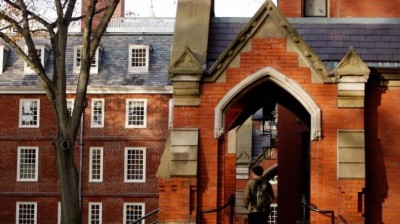Race-based admissions, refusal to celebrate gay weddings: 4 important Supreme Court decisions to watch
Students for Fair Admissions

On Halloween of last year, the Supreme Court heard oral arguments in the cases of Students for Fair Admissions, Inc. v. University of North Carolina and Students for Fair Admissions Inc. v. President & Fellows of Harvard College.
The litigation was centered on the admissions policies of the two schools, which included race as one of multiple parameters for student acceptance. The group Students for Fair Admissions argued that this was discriminatory against white and Asian applicants.
“In a multi-racial, multi-ethnic nation like ours, the college admissions bar cannot be raised for some races and ethnic groups but lowered for others,” said SFFA President Edward Blum in a statement.
“Our nation cannot remedy past discrimination and racial preferences with new discrimination and different racial preferences.”
The cases were heard separately so that Justice Ketanji Brown Jackson could take part in the UNC case; she had recused herself from the Harvard case because she had been involved in the debate over their admissions policy before joining the Supreme Court.
Some believe the cases might lead to the overturning of the 2003 Supreme Court decision Grutter v. Bollinger, in which a five-justice majority upheld a University of Michigan Law School policy that used race as one of many factors in admissions.
Justice Sandra Day O'Connor authored the majority opinion, arguing in part that "race-conscious admissions policies must be limited in time" and predicted that "25 years from now, the use of racial preferences will no longer be necessary to further the interest approved today."
During arguments last year, there was considerable debate over how long these schools will keep their affirmative action policies in light of the 25-year timeline mentioned in the 2003 decision.
Solicitor General Elizabeth B. Prelogar, representing the Biden administration in support of UNC and Harvard, argued that the policies were necessary to help prepare students for life in a racially diverse United States.
"A blanket ban on race-conscious admissions would cause racial diversity to plummet at many of our nation's leading educational institutions," Prelogar argued.
"Race-neutral alternatives right now can't make up the difference, so all students at those schools would be denied the benefits of learning in a diverse educational environment. And because college is the training ground for America's future leaders, the negative consequences would have reverberations throughout just about every important institution in America."



























